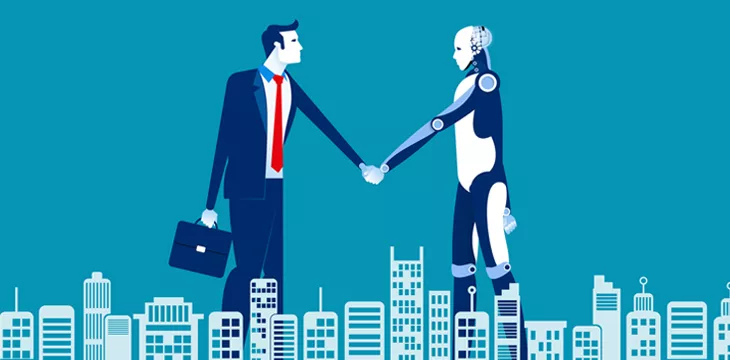|
Getting your Trinity Audio player ready...
|
Aboitiz Data Innovation (ADI) says it believes that integrating artificial intelligence (AI) in different sectors of the economy will create more jobs in the global workforce.
The Philippines-based company made its position public via its CEO David Hardoon in an interview with BusinessWorld. Hardoon stated that the belief that AI will trigger mass redundancy of human employees in the workplace is unfounded, noting that the technology will offer large-scale benefits for enterprises.
“Artificial intelligence will not replace people,” said Hardoon. “We are critically important and in fact, I can guarantee that the outcome of AI is needing more people because AI is about knowledge and providing information.”
According to the CEO, since AI relies on large amounts of data, it inevitably makes humans indispensable to the entire effort. Hardoon pointed to the growing employee strength of global technology firms despite their extensive internal automation systems.
“You are not going to wake up someday and no humans have to work on anything,” remarked Hardoon. “We are critically important. The outcome of using AI is needing more people. I have yet to see an organization that needs less people when it has more information and knowledge.”
Generative AI tools like ChatGPT and Google’s Bard (NASDAQ: GOOGL) have demonstrated competence in coding, scheduling, and auditing functionalities, sparking fears of AI replacements.
Experts have warned that generative AI could change the global workforce landscape, with certain roles facing dire risks of being replaced. In a report, jobs in media and some entry-level roles in certain sectors may be replaced by AI with an IBM report warning that 40% of global employees will need upskilling to remain competitive.
However, others are keen on welcoming AI with open arms, noting that the technology will augment processes in the workplace, leading to greater efficiency.
ADI’s CEO disclosed that the company has already begun incorporating AI across its energy and finance operations. Hardoon confirmed that the firm currently relies on AI for asset inspections while its finance unit makes use of AI to identify vulnerabilities.
The Philippines embraces AI
Similar to its embrace of blockchain technology, the Philippines has begun incorporating AI into key sectors of its economy.
Back in June, the country’s Department of Justice announced plans to leverage AI to crack down against human trafficking. However, the plans elicited diverse reactions, with critics claiming that the AI checks may increase the discomfort already faced by Filipino travelers.
“We’ll try to see if we can use artificial intelligence to vet many people who want to leave, especially those prone to human trafficking,” said Justice Secretary Jesus Crispin Remulla. “I hope they understand that it is part of our culture to protect our fellow Filipinos from being trafficked and becoming modern-day slaves.”
In order for artificial intelligence (AI) to work right within the law and thrive in the face of growing challenges, it needs to integrate an enterprise blockchain system that ensures data input quality and ownership—allowing it to keep data safe while also guaranteeing the immutability of data. Check out CoinGeek’s coverage on this emerging tech to learn more why Enterprise blockchain will be the backbone of AI.
Watch Dr. David Hardoon on CoinGeek Backstage: Blockchain & AI unlock possibilities

 03-04-2026
03-04-2026 




